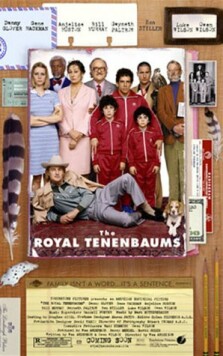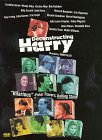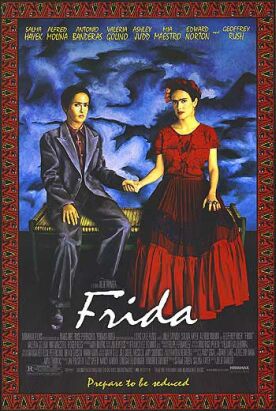Royal Tenenbaums, The
Like Rushmore, Wes Anderson’s last film, his latest, called The Royal Tenenbaums, does not unfold all its riches at once. Apart from anything else, you will be too busy laughing the first time you see it to register much more than an impression of its more serious side. But you cannot be unaware that it has a more serious side, which could be said to boil down to the question Royal O’Reilly Tenenbaum (Gene Hackman) puts to his adopted daughter, Margot (Gwyneth Paltrow): “Can’t somebody be a s*** their whole lives and try to repair the damage?”
The answer at first appears to be no, and Royal’s history of prevarication makes his purpose of amendment dubious at best. In a quirky opening section, the story of the Tenenbaum family is told in storybook fashion, with a series of tableaux vivants to illustrate the voiceover narration. The essence of it is that the three immensely talented children of Royal and his wife Etheline (Anjelica Huston) have been badly affected in later life by the breakup of their marriage and their father’s apparent indifference to them. We see him informing the children that he doesn’t know why Etheline is throwing him out, then adding as an afterthought that it might have something to do with the fact that “I haven’t been as faithful as I should have been.” When the kids ask if the split is their fault, he replies: “Obviously we made certain sacrifices as a result of having children, but no. Lord, no.”
On Royal’s departure, Etheline throws herself into cultivating the diverse talents of the three children and at first seems dazzlingly successful. She even publishes a book, called Family of Geniuses to explain how she did it. Chas (Ben Stiller) is a financial whiz-kid who gets his start breeding Dalmatian mice and makes his fortune before he is out of high school; Margot is a similarly precocious playwright whose first play was produced when she was eleven and who was hailed as a genius while still in her teens. Richie (Luke Wilson) is a world class tennis player. Royal, a lawyer, has little further to do with any of them, except to try to exploit Chas’s fortune for his own purposes, and he spends some time in jail after Chas sues him.
But as the film’s time-frame begins, all three kids are burnouts. Chaz’s wife has died in a plane crash and he has become morose and absurdly overprotective towards his two sons, Ari and Uzi. Margot has stopped writing on marrying a fashionable psychotherapist, Raleigh St. Clair (Bill Murray) and now finds herself blocked. She spends hours a day locked in the bathroom, smoking cigarettes, though neither her husband nor anyone else in the family know that she smokes. Richie exits pro tennis in spectacular fashion with a performance in the U.S. Open described by Sports Illustrated with the splash headline: “Meltdown!” The memory of their youthful promise is wiped out by “failure and disaster.”
Part of the reason for all the trouble is that Richie is secretly in love with Margot, with whom he ran away as a teenager and camped out in the African Antiquities section of the museum, sharing a sleeping bag. It was immediately following her marriage to Raleigh St. Clair that he had his “meltdown” on center-court. Now, Margot is also carrying on an affair with the children’s closest friend when they were growing up, the boy across the street called Eli Cash (Owen Wilson), who has become a minor celebrity, touted as “the James Joyce of the West” on the publication of his book Old Custer. He has also become a cocaine addict. Etheline, a prominent archaeologist, is proposed to by her quiet, shy, responsible accountant, Henry Sherman (Danny Glover) and has to confess that she hasn’t slept with a man in 18 years.
So much and such comic unhappiness is only to be expected from the extravagant nature of the central characters. This is hardly a naturalistic scenario, so it not a surprise when the action of the film finally gets underway with all three children as well as Royal moving back into their big old Victorian house on Archer street in an unnamed city. Royal has reached the end of his tether and is thrown out of his suite at the Lindbergh Hotel, where he has lived since the marriage broke up. Pretty obviously he wants to move back in because he has nowhere else to go, and because he wants to break up the romance between Etheline and Henry Sherman. Suddenly, when all his other plans for his life have failed, he decides that it is time to try to reclaim the life, and the family, he abandoned. He persuades Etheline to allow him back into the house by telling her that he is dying of stomach cancer and has only six weeks to live.
The circumstances of his moving back are, of course, unpropitious in the extreme, and his question to Margot about trying to “make it up” to her and the other children, as well as to Etheline, seems as cynical and calculated as everything else he does. But gradually, as so often happens in life, his playing the part of the penitent and returned prodigal turns into the reality of his life. He really does want to make it up to everybody, and in the end he does so. Even to Etheline. Even to Chas, who remains the most implacably hostile of the children and whose unresolved grief for his dead wife, Rachel, in any case prevents him from forming any other human attachments. When Chas refuses to allow Ari and Uzi to meet their grandfather. Royal sees the children on the sly and introduces them to risks — including driving go-carts, riding horses, hitching a ride on the back of a garbage truck and shoplifting — that would make their father’s hair turn white. Naturally, the boys adore the old man.
In the end, no one quite gets his broken-down life back, however. That would be much less believable than the extravagant sufferings and even more extravagant personalities of the Tenenbaums. But when, near the end, a coked up Eli smashes his sports car into the Tenenbaums’ house on the day of Etheline’s wedding to Henry Sherman and Ari and Uzi are saved from certain death by their grandfather, Chas finally melts, turning to his father and saying: “I’ve had a rough year, dad.”
“I know you have, Chazee,” says his father tenderly, and perhaps for the first time in his life he really has experienced someone else’s pain. It is a moment of redemption that is enhanced, I think, by all the seemingly irrelevant craziness going on around him. This glimpse of moral clarity must eventually also have its redemptive function in the lives of the children and of Etheline, but for the moment it is important for the Tenenbaums to remain as charmingly dysfunctional as they have always been.
Discover more from James Bowman
Subscribe to get the latest posts to your email.







